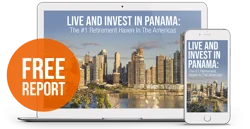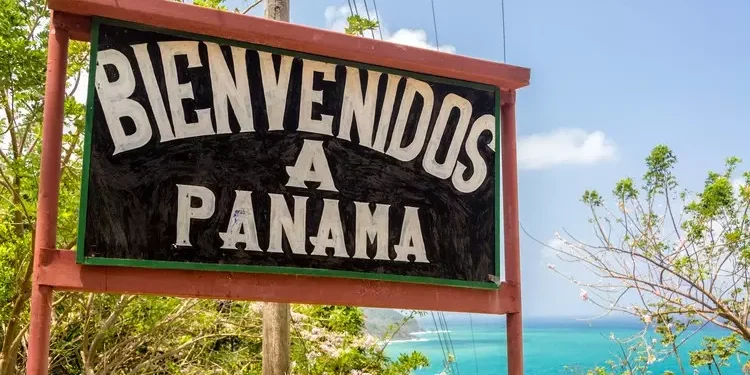If you’re not a Panamanian, Panama is a foreign country for you…which means the way people do things here will seem, well, foreign to you.
It’s not that one way is better or worse than the other. But, no question, you’ll notice that things down here in the Hub of the Americas are different.
For the most part, life here is simpler. Panamanians are never in a hurry (except when they are behind the wheel).
To appreciate what this country has to offer, you’ll have to learn to go with the flow and to adjust to the local pace. It’s certainly not going to work the other way around. Panamanians aren’t going to change their ways to suit you.
Here are some particular Panamanian idiosyncrasies that may cause you stress if you’re not expecting them…
Banking
To open a bank account in Panama, you have to come here and meet the account manager face-to-face. The banks want to know with whom they are working, and although much of the process can be completed from afar, you will need to make at least one trip to Panama to visit the bank in person.
Nearly every bank in Panama closes by 4 p.m. on weekdays and at 12:30 p.m. on Saturdays. Government offices keep the same hours, except that they do not open on Saturdays.
Every bank has a separate queue for those over the age of 55. Panamanians respect their elders, and they are always served first.
Get Your Free Panama Report Today!
Simply enter your email address below and we'll send you our FREE REPORT - Live And Invest In Panama: The #1 Retirement Haven In The Americas.
In Panama, it is fairly common for an ATM to run out of money. This happens most often during national holidays, long weekends, and payday weekends.
Even if you have a local bank account in Panama, it is not possible to deposit a check into an ATM. To deposit a check, you must go inside and stand in line to deal with a teller.
You can withdraw as little as $5 from a Panamanian ATM.
Socializing
When men (including expats) are out with a Panamanian woman, the man is expected to pay for everything. This is changing, though. More and more Panamanian women will offer to split the bill or even be the one paying for the meal that day.
Personal space is non-existent in Panama.
While standing in line at the bank or grocery store, the person behind you will stand so close you’ll be able to feel his or her breath on your neck. The stranger sitting next to you has no problem resting his or her arm or leg or both against you. In the mall, people will walk so close to you they may bump into you.
They will not apologize because physical contact with strangers is normal here.
Driving
Panamanians rarely use their directional signals when driving. Don’t expect advance warning before the car in front of you makes a turn.
Panamanians tend to drive in the left (passing) lane on the highway, even if they are traveling at a very slow speed.
The car horn is every Panamanian’s best friend and Panamanians are not courteous drivers. Expect to be cut-off, honked at, and followed dangerously close from behind.
A Panamanian driver’s license is valid only as long as your residency visa. If you have a one-year visa, you can obtain a one-year driver’s license. Also note that you need a blood test before you can obtain a Panamanian driver’s license. This is to determine your blood type (which appears on your license in case of an emergency) and to detect if you have uncontrolled diabetes.
Services
Wherever you go for service—to a bank, a restaurant, a store—you’ll find that the person serving you is not likely to show a smile. Those who work in the service industry don’t see you as a valued customer keeping them employed. Quite the contrary. They figure you need them more than they need you.
Service is slow in Panama. This applies everywhere—at banks, restaurants, utility companies, etc.
It’s always mañana. If you are relying on someone to do something for you, and he tells you mañana, don’t interpret this literally. That is, don’t expect the follow-through tomorrow. Don’t expect it the day after tomorrow either.
Mañana doesn’t mean “tomorrow.” It means not now. Panamanians don’t want to make you feel bad by telling you they can’t help you or that what you need will take a long time to deliver.
When you have a problem—with a bill, a service, a purchase, etc.—it’s unlikely anyone will go out of his way to help you solve it. More common is a shrug of the shoulders, as if to say, “That’s too bad, it’s out of my hands,” even though it may not be.
Don’t take it personally, but you can’t expect to receive prompt replies to e-mails or phone messages. Often, you’ll find that you have to chase the person you are trying to get in contact with, or you may never hear from them.
If you try to pay for something with a $50 bill, the store manager will be called over, and the clerk will do a test to make sure it’s not fake. By law, all stores must accept $50 bills, but some will not. Paying for a $49 item with a $50 bill in Panama triggers the kind of response you might expect trying to pay for a stick of gum with a $100 bill in North America.
Sincerely,
The Editors of Live And Invest Overseas










